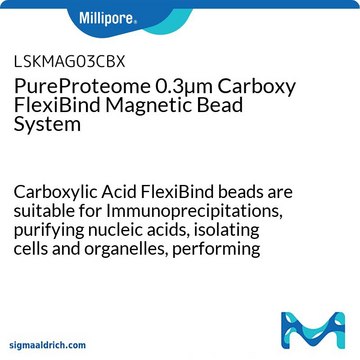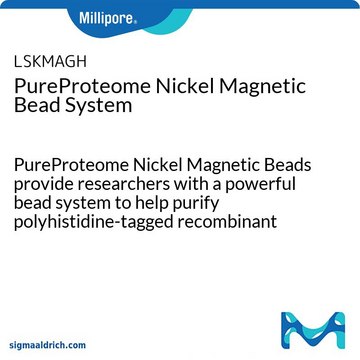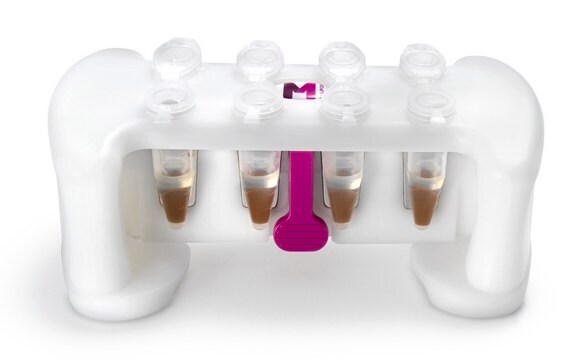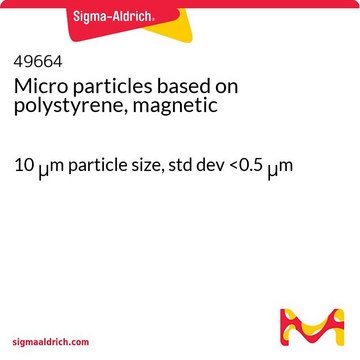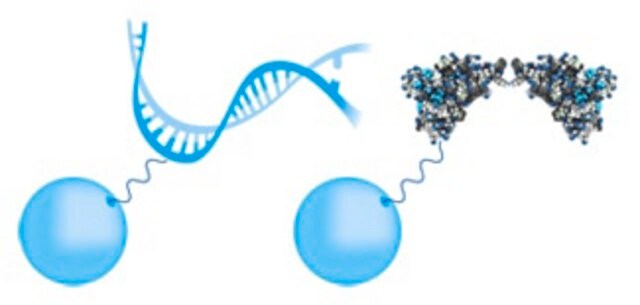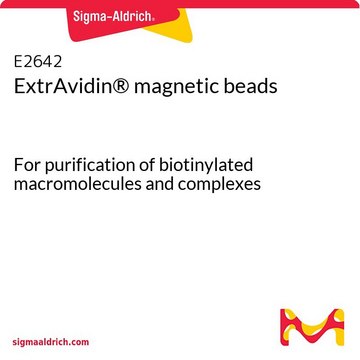LSKMAG1CBX
PureProteome 1.0µm Carboxy FlexiBind Magnetic Bead System
Carboxylic Acid FlexiBind beads are suitable for Immunoprecipitations, purifying nucleic acids, isolating cells and organelles, performing protein-protein interaction studies and many other applications.
Iniciar sesiónpara Ver la Fijación de precios por contrato y de la organización
About This Item
UNSPSC Code:
41105507
eCl@ss:
32160405
NACRES:
NA.56
Productos recomendados
Quality Level
form
slurry
packaging
pkg of 2 × 1 mL
manufacturer/tradename
PureProteome
technique(s)
protein purification: suitable
particle size
1 μm
capacity
97–114 μmol/g, settled beads binding capacity (carboxylic acid
carboxylic acid
carboxylic acid)
shipped in
wet ice
General description
PureProteome 1.0µm Carboxy FlexiBind Magnetic Beads provide researchers flexibility in binding the ligand of their choice. The only prerequisite is that the molecule must contain a primary free Amine group. Carboxylic Acid FlexiBind beads are suitable for Immunoprecipitations, purifying nucleic acids, isolating cells and organelles, performing protein-protein interaction studies and many other applications. We also have 0.3µm and 2.5µm Carboxy FlexiBind Magnetic Beads – match the bead to your application!
Application
Carboxylic Acid FlexiBind beads are suitable for Immunoprecipitations, purifying nucleic acids, isolating cells and organelles, performing protein-protein interaction studies and many other applications.
Research Category
All
All
Disclaimer
Unless otherwise stated in our catalog or other company documentation accompanying the product(s), our products are intended for research use only and are not to be used for any other purpose, which includes but is not limited to, unauthorized commercial uses, in vitro diagnostic uses, ex vivo or in vivo therapeutic uses or any type of consumption or application to humans or animals.
Storage Class
12 - Non Combustible Liquids
wgk_germany
WGK 1
flash_point_f
Not applicable
flash_point_c
Not applicable
Certificados de análisis (COA)
Busque Certificados de análisis (COA) introduciendo el número de lote del producto. Los números de lote se encuentran en la etiqueta del producto después de las palabras «Lot» o «Batch»
¿Ya tiene este producto?
Encuentre la documentación para los productos que ha comprado recientemente en la Biblioteca de documentos.
Nuestro equipo de científicos tiene experiencia en todas las áreas de investigación: Ciencias de la vida, Ciencia de los materiales, Síntesis química, Cromatografía, Analítica y muchas otras.
Póngase en contacto con el Servicio técnico